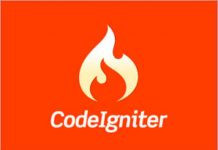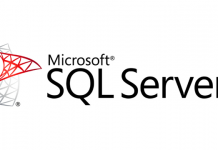WHAT IS NOSQL DATABASE?
NoSQL also know as Non SQL or Not Only SQL is a Non Relation Database System that is designed in non-tabular in contrary to widely practiced in Relational Database System. NoSQL offers simplicity over design with data structures that are different from traditional database system and bids reliability in terms of simplicity, scalability, efficiency and availability.
NoSQL works on straight load-balanced clusters with doggedness data and scalability over available data storage. NoSQL are ACID (Atomicity, Consistency, Isolation and Durability) in nature and offers steadfastness. Further, NoSQL come along variety of types – be it – key-value, tuple, graph, object oriented, documentation, hosted, multivalue, multimodel and tabular, thereby operating on individual query system than on SQL (Standard Query Language).
Moreover, there are variety of NoSQL Database list based on its type namely Hadoop (Wide Column Store type), RocksDB (Key Value / Tuple Store), ArangoDB (Graph Database), OrientDB (Multimodel Database), Objectivity (Object Database), GigaSpaces (Grid and Column Database Solution), Sedna (XML Database), Globals (Multidimentional Database), and more.
Further, NoSQL is widely used by companies like Google, Amazon, eBay and Twitters. However, Traditional SQL is in no way getting deprecated and it is still far too early to decide between which databases solutions to use between NoSQL and SQL. Nevertheless, NoSQL does offer a new-fangled approach of thinking of a Database System.
Let us discuss a modest about various common NoSQL Database…
CHOOSING BETWEEN MongoDB, AeroSpike and CouchBase
MongoDB (https://docs.mongodb.org)
MongoDB is a ‘Document’ type NoSQL Database for faster application performance making use of Object to structure data in BSON (similar to JSON) format offering scalability and data consistency.
Pros of MongoDB:
- Uses ‘Sharding’ technique to enable horizontal scalability thereby overcoming hardware limitation and contributing to load-balanced cluster for lightening speed.
- Supports ACID properties as in relation database at document level.
- MongoDB supports access mechanisms like LDAP, AD and security certificates.
- Data replication is very easy, and does it automatically in terms of letdown.
- Offers rich query support with on the fly indexing capabilities.
Cons of Mongo DB:
- Consumes too huge of a system space with poor mechanism to data de-allocation.
- Data repairing is time consuming and in crash you lose your data.
- The magnitude of the database is narrowed by RAM limitation.
AeroSpike (http://www.aerospike.com/)
AeroSpike is flash-optimized in-memory and key-value type NoSQL, a reliable NoSQL database storage system focused on high performance and easy scaling with operation delivering speed in congruence to other solutions.
Pros of AeroSpike NoSQL:
- Data replication is very easy with different data centers offering great data consistency, and commits automation in case of letdown.
- Stores data in RAM for quick availability of data and offers exclusive de-allocation mechanism.
- Capable of functioning reliably even on a smaller set of hardware with tranquilly maintaining true uniformity.
- Order of magnitude for AeroSpike set it apart from everyone else.
Cons of AeroSpike NoSQL:
- Does not supports features like Trigger, Map Reduce and Transactions.
CouchBase (http://www.couchbase.com/)
CouchBase is a ‘Document’ type NoSQL Database designed for interactive application like – Web Productions, Mobile and IoT Applications with an easy to maintain GUI Consoles.
Pros of CouchBase:
- System crash and Power failure does not affect the data.
- Replication is one-directional or bi-directional with easy.
- Exclusive use of HTTP using application Views make it adaptable.
- Offers low latency and high sustaining throughput.
Cons of CouchBase:
- Clashes with data redundancy when maintaining update for different document.
However, we sure cannot judge from the list of diverse NoSQL database at our disposal, but we’re sure that you can be the judge to choose between aforementioned Non-SQL Databases based on your application requirement.




